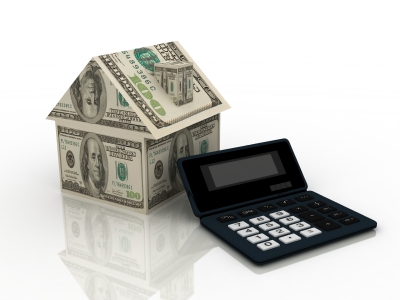Saving money is never easy. After paying the mortgage, bills and having a little fun there isn't always a lot of money left over, but making a commitment to build an emergency fund is important for homeowners, and potential home buyers too, for a number of reasons.
 First, figure out how much it costs or will cost you to live every month and include everything. If you're not entirely sure, write down all your monthly bills and then keep track of everything (i.e., coffee, gas, groceries, etc.) you spend money on for 30 days.
First, figure out how much it costs or will cost you to live every month and include everything. If you're not entirely sure, write down all your monthly bills and then keep track of everything (i.e., coffee, gas, groceries, etc.) you spend money on for 30 days.
Your goal should be to save six months worth of expenses.
It may seem like a daunting task, but it is important to get started. Open a separate bank account just for your emergency fund, sometimes called a rainy day fund, and put $20 in it to get started. You also can use your next tax refund to get your fund started or to add to the fund. Come up with a game plan to save weekly, semi-monthly or monthly. Start a home buyer emergency fund before you even purchase your first home, and mortgage lenders will love you. You may not get a loan, if you can't show a lender that you will not be broke the minute you leave the closing. Having some money saved definitely will decrease the anxiety you might be feeling about such a big purchase. Besides, buying a home should be exciting.
The following are just a few reasons to get started saving today for a rainy day.
1. No one wants to think they could ever lose their job, but it happens to good, hard-working people all the time. Even if you're self employed, all businesses have ups and downs. Losing a job and searching for another one can be stressful enough; you don't need the added stress of worrying whether you can pay your bills. Maybe you're not going to lose your job, but you wish you would. You won't be tied to a job you hate, if you have the savings you need to quit and find another job, start a business or change professions.
2. Although the good far outweighs the bad when it comes to homeownership, you have to be prepared for the occasional bad. Your roof isn't going to warn you before it leaks, and you will not receive a telephone call from your hot water tank before it lets go. Whether the problem is big or small you'll want the money available to fix it without putting the bill on your credit card and going into debt.
3. None of us wants or plans to get sick, but it happens to older and younger folks alike. Maybe you miss work or maybe your health insurance doesn't cover all the medical expenses. If you need ongoing treatment, there may be a lot of unexpected co-pays. If you're self employed, there is no telling how much your health insurance premiums might rise next year.
4. You already know when your car is going to break down. That would be about a week after the manufacturer's warranty expires. If you use your vehicle to get to work, you don't have much choice to get it fixed right away.
A list such as the one above could be a lot longer. The bottom line is homeownership can through you a curve ball, so you should plan for the unexpected.
.png?width=400&height=85&name=2023%20BBO%20Logo%20800x170%20(400%20x%2085%20px).png)





